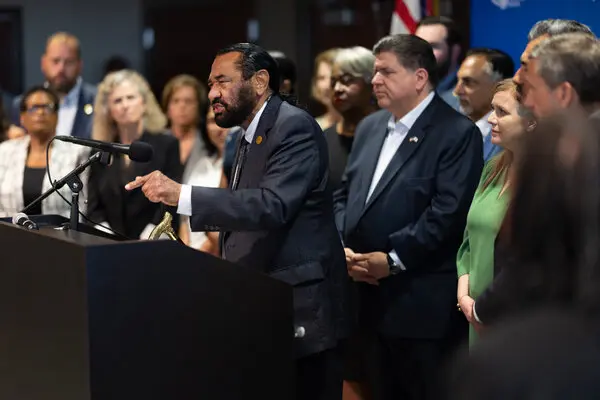In a decision that drew sharp criticism from lawmakers, emergency experts, and humanitarian organizations, the Trump administration redirected resources from the Federal Emergency Management Agency (FEMA) to Immigration and Customs Enforcement (ICE) during the height of hurricane season. This controversial move raised serious concerns about the nation’s preparedness for natural disasters, particularly as climate change has intensified the frequency and severity of hurricanes affecting the U.S. coastline.
The reassignment involved moving hundreds of FEMA personnel, including emergency response coordinators and planning experts, to ICE as part of broader immigration enforcement efforts. The timing—during one of the most critical periods for disaster response—sparked fears that the U.S. would be ill-equipped to deal with hurricanes, floods, and other emergencies that demand rapid and coordinated federal action.
FEMA’s Role in Emergency Management
FEMA plays a pivotal role in disaster preparedness, response, and recovery. The agency is responsible for coordinating with state and local governments to manage evacuations, supply chains, shelters, and emergency medical support. Its resources are already stretched thin during hurricane season, with multiple teams deployed simultaneously to different disaster zones across the country.
Shifting FEMA staff to ICE duties, including clerical roles and administrative tasks linked to detention and deportation efforts, effectively reduced the agency’s operational capacity. While the administration defended the decision as a necessary step in enforcing border security policies, critics argued that the move undermined FEMA’s core mission at a dangerous time.
Timing Raises Alarms
The transfer occurred just as meteorologists warned of an above-average Atlantic hurricane season. Several hurricanes had already formed or were forecasted to make landfall, prompting mandatory evacuations in coastal states. Local governments, often reliant on FEMA’s logistical and financial support during such crises, expressed alarm that their federal backup was being weakened.
Moreover, the U.S. had not fully recovered from previous years’ disasters. Hurricane Maria’s aftermath in Puerto Rico, Hurricane Harvey’s devastation in Texas, and widespread wildfires in California had already strained FEMA’s budget and staff. Communities still struggling to rebuild viewed the diversion of FEMA resources as a betrayal.
Political and Public Backlash
The move drew condemnation from both Democratic and some Republican lawmakers. Congressional leaders accused the administration of politicizing emergency response efforts and playing with lives for the sake of an anti-immigration agenda. They questioned the legality and ethical implications of reallocating disaster response funds and personnel for immigration enforcement without public notice or congressional approval.
Human rights organizations also voiced concerns, not only about the redirection of disaster relief resources but about what it signaled regarding the administration’s priorities. In their view, the shift revealed a disturbing preference for punitive immigration measures over the safety and welfare of American citizens facing life-threatening weather events.
Protests and hearings followed. FEMA officials, when questioned, admitted to internal disruptions and acknowledged the logistical challenges of losing experienced personnel during active disaster operations. However, they insisted they could still meet essential obligations—a claim many found unconvincing.
Impact on Preparedness and Response
Evidence began to surface that FEMA’s reduced capacity was impacting the efficiency and timeliness of its disaster response. Reports from local emergency managers indicated delays in equipment deliveries, coordination issues, and longer response times. This was particularly worrying in rural or underserved areas that rely heavily on federal support during crises.
Additionally, the morale among FEMA staff reportedly suffered. Some employees, trained in disaster mitigation and relief, were reassigned to unfamiliar roles at ICE facilities, creating confusion and frustration. The sudden change in duties not only hampered FEMA’s readiness but also reduced staff effectiveness in both agencies.
Meanwhile, ICE did not necessarily benefit from the reallocation. FEMA staff, untrained in immigration policy or enforcement, were not an ideal fit for the complex demands of immigration cases and detainee management. This created inefficiencies on both ends and raised questions about the strategic logic of the move.
Broader Implications
This incident symbolized a broader trend in the Trump administration’s governance style—one marked by a willingness to upend established norms and agency roles in pursuit of policy goals. In this case, the administration prioritized aggressive immigration enforcement at the potential cost of citizen safety during natural disasters.
It also ignited a national conversation about the balance of power between public safety and political agendas. Should an administration be able to shift critical resources in the face of looming natural threats? What safeguards are in place to prevent misuse of emergency agencies? These were questions that lawmakers and legal scholars began debating in earnest.
In response to the outcry, some members of Congress introduced legislation to prevent future diversions of FEMA resources during designated disaster seasons. However, the long-term damage—to both FEMA’s reputation and public trust—had already been done.
Conclusion
The Trump administration’s decision to reassign FEMA staff to ICE during hurricane season was a gamble that risked compromising disaster preparedness at a perilous time. It highlighted vulnerabilities in federal agency oversight and underscored how political priorities can clash with public safety needs. As the climate crisis continues to escalate the intensity of natural disasters, the importance of maintaining a fully operational and apolitical emergency response agency like FEMA cannot be overstated.



